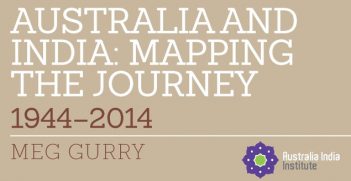Being Political: Leadership and Democracy in the Pacific Islands

Few books on Pacific Islands politics cover the entire region. Fewer still set their arguments firmly in the broader context of democratic theory and include references to St Augustine, Machiavelli and Weber. But that is what Jack Corbett has done here and with notable success. He wants to confront and undermine explanations of Pacific politics that rely upon its alleged exceptionalism, a common analytical approach. Pacific democratic politics, Corbett tells us, is like democratic politics anywhere, even though its setting is developmental and is characterised by states that are far less effective than the states with which they are routinely compared.
The sense of disappointment with politicians found in the Pacific, he says, is something that arises not from the unique circumstances of the region but from the universal circumstances of democracy itself: namely, the paradox that politicians must raise expectations in order to get elected and lower them in order to govern, a cycle that repeats itself endlessly in all representative democracies. In the Pacific, this sense of disappointment is found in heightened form in the nostalgia that people feel for the era of the first leaders following independence, such as Ratu Sir Kamisese Mara of Fiji or Hammer de Roburt of Nauru, compared with what are seen as the self-serving Pacific leaders of our own time.
Corbett is on a rescue mission: he wants to rescue the Pacific from being defined by its deficits and the idealised prescriptions of good governance, the standard criterion against which Pacific countries’ political performance is measured by aid donors. Invariably, Canberra and Wellington find that the Pacific falls short. Corbett wants to rescue Pacific politicians from being seen as uniformly and ineradicably corrupt. He interviewed more than 100 Pacific politicians and drew on 150 case studies, emerging with salutary reminders of the pressures that Pacific politicians face, chief among them the relentless demands of relatives and constituents for financial assistance.
Let’s look at politics in the Pacific, Corbett says, by listening to the experiences of politicians themselves: from the backgrounds that propel them into politics to the business of running for office, being in Parliament, passing laws, being ministers and being leaders. The result is a human portrait of the lives led by Pacific politicians, often in their own words, and of their ambitions, their frustrations, the pressures brought to bear upon them, their successes and their failures. But it is more than that: this book casts a new and penetrating light on the general conduct of politics in the Pacific Islands and will become an indispensable source for students of the region.
Jack Corbett, Being Political: Leadership and Democracy in the Pacific Islands (University of Hawai’i Press, Honolulu, 2015)
Reviewed by Dr Stewart Firth, Research Fellow, College of Asia and the Pacific, Australian National University. This article is published under a Creative Commons Licence and may be republished with attribution.





